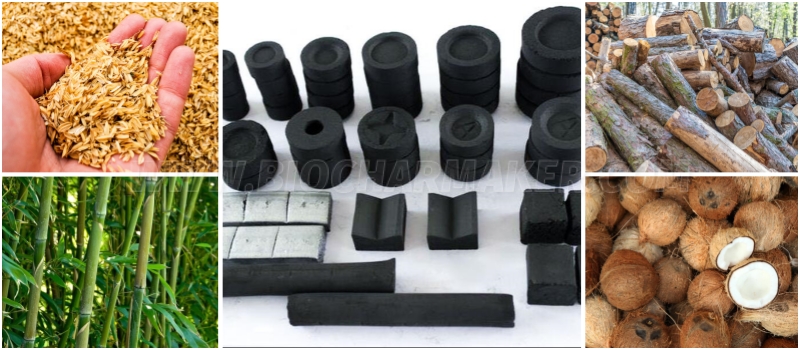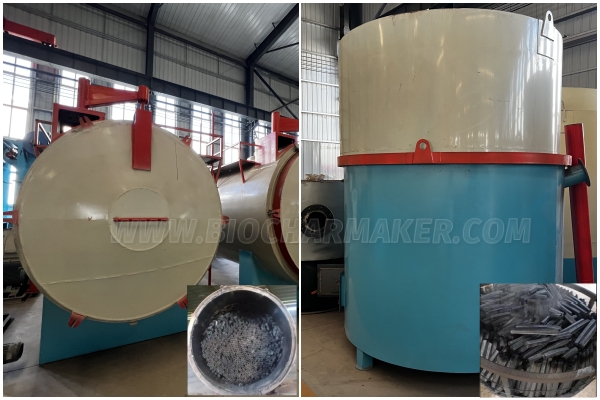Determining the “best” commercial charcoal kiln largely depends on the specific needs and goals of your operation, including the scale of production, the type of feedstock you’re using, the desired quality of charcoal, your budget, and your location’s environmental regulations. There are several types of commercial charcoal kilns available on the market, each with its own advantages and disadvantages. Here, we will discuss some popular types and the considerations you should keep in mind when choosing a carbonization kiln.
Batch Charcoal Kilns
Traditional Earth Mound Kilns
These are the simplest type of charcoal kilns, consisting of a pile of wood covered with earth or metal sheets.
They are low-cost but also less efficient, with more significant smoke emissions and potential environmental impact.
Brick Kilns
Similar to earth mound kilns but constructed of bricks, offering slightly better control over the pyrolysis process.
They are more durable than earth mounds but can still be less efficient than more modern designs.
Retort Kilns
These kilns heat the wood in a sealed chamber, or “retort,” which allows for the recovery and reuse of the gases produced during carbonization, improving efficiency and reducing pollution.
Retort kilns is more costly than traditional earth mound kilns and brick kilns, but they are more environmentally friendly and can produce a consistent charcoal quality. It usually contains horizontal carbonization kiln and hoisting charcoal furnace.
Continuous Charcoal Kilns
Rotary Kilns
These are cylindrical kilns that rotate to ensure even heating and carbonization of the wood.
They tend to be high-capacity and can handle various feedstock types but may require a significant initial investment. Click here to learn more.
Considerations for Choosing a Commercial Charcoal Kiln
Production Scale
Determine the quantity of charcoal you need to produce to meet your demand. Large charcoal making operations may benefit from continuous rotary kilns, while smaller ones might opt for batch kilns.
Feedstock Type
Different kilns handle various wood types and sizes more efficiently. Ensure the kiln you choose can accommodate the feedstock available to you.
Quality of Charcoal
Higher-quality charcoal can often be produced in retort or rotary kilns, which provide better control over the carbonization process.
Budget
More sophisticated kiln designs, such as retort and rotary kilns, require a higher initial investment but may offer savings in the long run due to their efficiency and lower biochar production operating costs.
Environmental Regulations
Compliance with environmental regulations is crucial. Kilns with higher efficiency and better emission controls, like retort kilns, may be necessary in regions with strict environmental laws.
Ease of Operation and Maintenance
Some kilns require more technical know-how to operate and maintain. Consider the skills and manpower you have available when choosing a kiln.
It’s important to conduct thorough research and perhaps consult with industry experts or manufacturers to find the kiln that best fits your needs. You might also look for reviews or case studies of different kiln models being used in similar operations to yours. Here, you can visit https://www.biocharmaker.com/product/carbonization-furnace-for-charcoal/ for reference.
Ultimately, there is no one-size-fits-all answer to the best commercial charcoal kiln, but by carefully considering the factors above, you can make an informed decision that aligns with your business objectives and operational capabilities.


